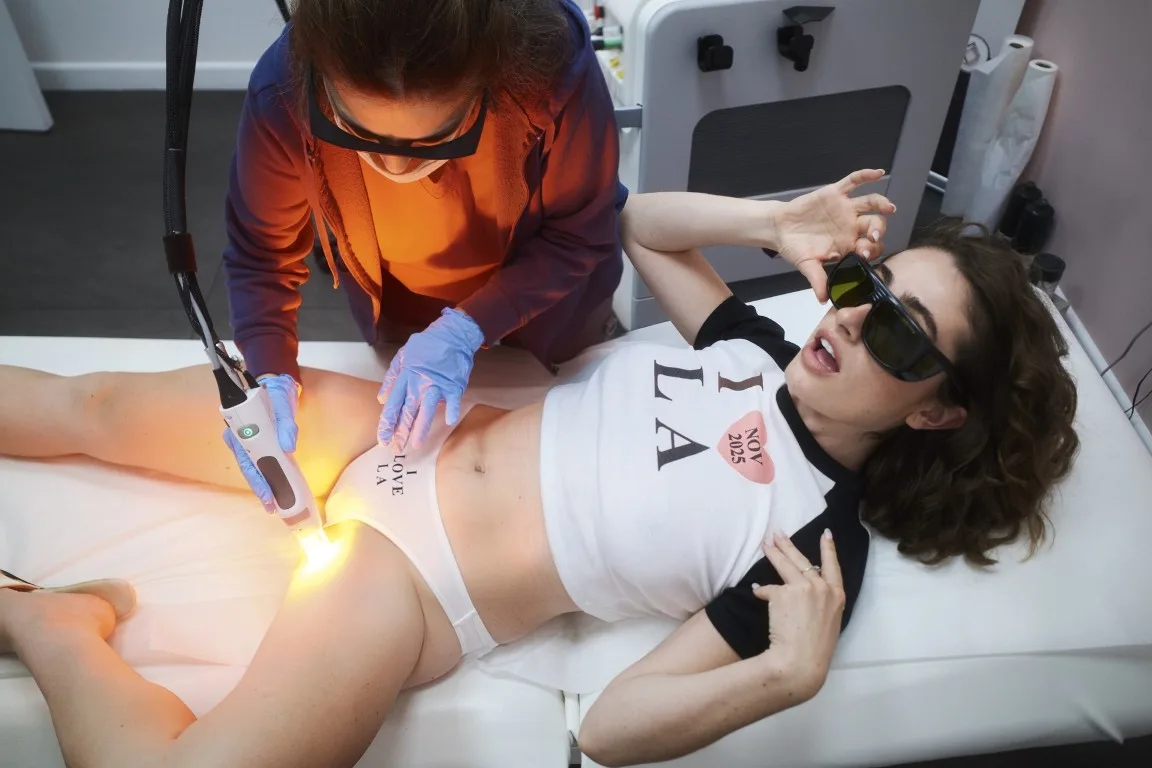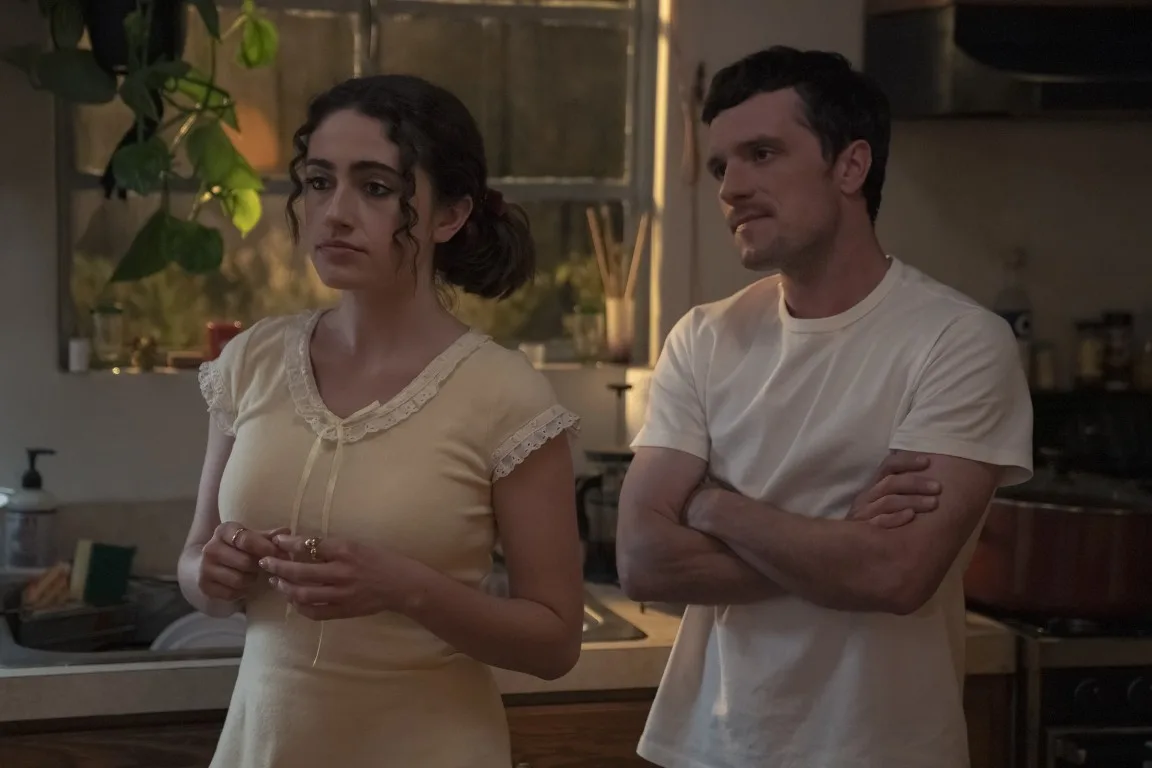Early on in Rachel Sennott‘s uproarious West Coast comedy “I Love LA,” a personality whines, “What’s the purpose of being good if nobody who can assist me sees it?” If something, that feels just like the thesis assertion for the 30-year-old actress and comic’s new present, which looks like “Women” filtered by the LA showbiz vibes of “Entourage” and “The Different Two.” It’s a present for the self-obsessed, the image-centric, and the painfully irresponsible. In that respect, it’d seize its setting and cohort completely.
Creator Sennott, who made a splash in Emma Seligman’s “Shiva Baby” earlier than spinning off into roles in “Bodies Bodies Bodies” and “Bottoms” (which she co-wrote with costar Ayo Edebiri), stars as Maia, an aspiring expertise supervisor who works because the espresso bitch for a mid-size expertise company. (Her boss, performed by Leighton Meester, is the type of employer who will flit between treating you as a good friend and an worker relying on what you are able to do for her in that second.) She’s acquired a dream boyfriend in Dylan (Josh Hutcherson), the type of attractive, supportive supplier whose generosity clearly will get taken as a right by the vapid Maia. Fortunate for her, she’s nonetheless tight along with her faculty associates, movie star stylist Charlie (Jordan Firstman) and nepo child actress Alani (True Whitaker, daughter of Forest, herself a nepo child), who lookup from their telephones simply lengthy sufficient to validate her personal ambitions.
However the winds begin to shift when Tallulah (Odessa A’zion, daughter of Pamela Adlon), a budding influencer and Maia’s former bestie-turned-frenemy, drops by her doorstep unexpectedly, trying to rekindle their friendship (and have Maia change into her new agent). Maia has beef with Tallulah from previous resentments, and it’s clear from seconds of interplay that their dynamic is poisonous, codependent, and deeply troubled. However it’s that very same codependence that retains them addicted to one another’s orbit, and so the pair falls again into their previous habits from again in New York, now filtered by the solar, intercourse, and superfluousness of 2020s Los Angeles.

From the get, “I Love LA” looks like a stare down the barrel on the age of Web ‘it’ women, and the parasocial relationships that need to be constructed to be able to get forward in that individual city. Characters weaponize Instagram blocks and TikTok Lives to harm or acquire entry to these they love, covet, or hate; we get gags about click on farms, movie star home events (although the cameo we get right here, which we’ll go away unspoiled, is selection), and the fastidiously curated language influencers use to get themselves out of dangerous PR. (“White on white bullying is far simpler to come back again from,” a disaster administration guide tells Maia after one in all Tallulah’s near-cancellations.)
Our central group of besties, save Dylan, are totally sucked into this superficial world and feed off one another’s narcissism, which—for those who’ve acquired the abdomen for unsympathetic characters—is “I Love LA”‘s secret weapon. Sennott and her group of writers discover a lovely cadence for the type of tossed-off, vocal-fry-laden witticisms these like-obsessed sociopaths spill from their mouths. Maia wryly observes at a mid-level LA membership that “They used to roofie folks, however then they fastened it.” (“Bummer,” replies Tallulah.) “You have been boho,” Charlie barks at a consumer who’s simply fired him in humiliating style. “I made you cunt.”
It helps, after all, that the performances are pure and fast-paced, clearly taking Sennott’s acerbic, deceptively nuanced lead. These are good portrayals of dumb characters; Whitaker, although she will get the least runway of the central group, makes probably the most of Alani’s lack of self-awareness and lands fairly a couple of good jokes. A’zion can be a deal with, bouncing off Sennott with devil-may-care glee in ways in which conflict and feed off their respective energies. (Her eventual romance with a neighborhood chef, performed by Moses Ingram, grounds her in a manner that balances the rougher edges of the character.)

Hutcherson is quietly integral to the present because the one regular individual within the group, whose relative groundedness (he simply likes to prepare dinner and play board video games, dude) gives a squeaky-clean mirror for the various flavors of self-destruction on show. However Firstman is maybe the spotlight of the group, a homosexual man who tries—and repeatedly fails—to channel the catty power of an LA queen into private success. (The present delights in forcing us to ask whether or not Charlie has the worst gaydar on this planet, or if LA tradition makes even the straightest sizzling guys act actually, actually homosexual.)
Amid the laugh-a-minute dialogue and innately absurd situations, “I Love LA” is greater than a zoo the place we are able to level and giggle at obsessive selfie-takers. Sennott finds exceptional moments of vulnerability in Maia’s pathological neediness and insecurity, even when the hustle tradition she so covets leads her down self-destructive paths that have an effect on her friendships and relationships. Within the metropolis, everyone seems to be a useful resource, an opportunity to community, a automobile by which one can bolster their popularity. However you may also inform that these folks (stunted by COVID lockdowns, influencer tradition, and the transactional, success-breeds-all nature of LA) desperately need to work out easy methods to belong and matter.
Maia’s codependency towards her good friend group comes from a determined need for neighborhood. Of their greatest moments, they do come collectively in concord—even when it’s simply to hate on a rotted bitch’s Instagram grid.
Full season screened for assessment. Premieres November 2 on HBO.


